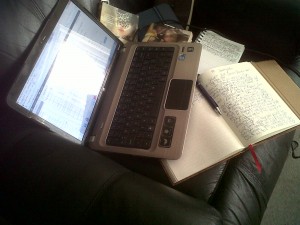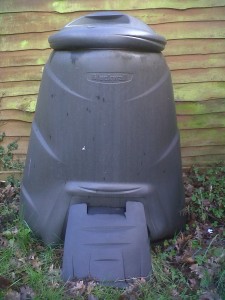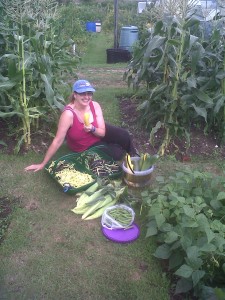 A huge part of being a novelist is analysing everything I read, everything I see, everything I watch on television, on YouTube, at the cinema. I do this to make myself a better writer. I do this because I need to know what works, what doesn’t, and why. Of course, what works and what doesn’t is all filtered through my own grey matter and my own life experiences, so it may not be the same for another writer, and certainly not for another reader. I find myself thinking about this analytical writers’ life most often when something really, really works, or really, really doesn’t. That isn’t to say that what doesn’t work is something I hate. That’s pretty obvious. But more often, for me, I find myself analysing the things that I walk away from feeling pretty much unaffected. If I feel meh about something then I want to know why.
A huge part of being a novelist is analysing everything I read, everything I see, everything I watch on television, on YouTube, at the cinema. I do this to make myself a better writer. I do this because I need to know what works, what doesn’t, and why. Of course, what works and what doesn’t is all filtered through my own grey matter and my own life experiences, so it may not be the same for another writer, and certainly not for another reader. I find myself thinking about this analytical writers’ life most often when something really, really works, or really, really doesn’t. That isn’t to say that what doesn’t work is something I hate. That’s pretty obvious. But more often, for me, I find myself analysing the things that I walk away from feeling pretty much unaffected. If I feel meh about something then I want to know why.
I should never walk away from a good story feeling meh. In fact that’s the litmus test for me. A horrible story offers its own petty pleasures, but meh is forgettable, and forgettable is not acceptable for a novelist or a reader. We all want repeat performances of what we love most and we’re all anxious to be led to the next level beyond intimated by that experience.
Being a romance writer, it’s a given that I want chemistry, that I want love, that I want sizzle and sass. But I could have
written those things in my diary when I was a teenager, and probably would have if I hadn’t been afraid someone would find it where I hid it under my mattress and share it with all the world. Heavens, I had so many deep dark secrets at the ripe old age of sixteen, and I wrote about them … ad nauseum, always with me and my feelings at the center. Me, me, me! In essence I could boil down most of my journals as being one long multi-volume navel gaze. Oh for me it was  endlessly fascinating to explore my inner workings, my inner feelings, my loves and losses and obsessive crushes, the fleeting glances, the anguished longing. But I’m pretty sure it would have been a real yawner for anyone else to read.
endlessly fascinating to explore my inner workings, my inner feelings, my loves and losses and obsessive crushes, the fleeting glances, the anguished longing. But I’m pretty sure it would have been a real yawner for anyone else to read.
What I’ve discovered is that no matter how fascinating my own might be, someone else’ navel gaze is never as interesting to me. And there are plenty of romance novel navel gazes out there to be read. What I want, what I need is conflict and chaos. For romance in story to be more than a navel gaze there needs to be both. Two people dealing with conflict, two people thrown into a situation that demands something of them, that places them at risk or forces them to take a chance moves beyond the realm of the dear-diary-navel-gaze and into the realm of story.
The situation, the conflict, the action is the very best place to see how people respond to each other, the very best place
to watch them grow beyond themselves. It’s through conflict and action we learn who the characters in story really are. The Happy Ending is just that — an ending. Beyond that there may be endless navel gazing by readers, creators of fanfic, even we writers ourselves. But that’s a different animal. When I wrote my first novel, long after I’d written THE END, in my head, I was still creating new and different opportunities for my characters to gaze into each others’ eyes and to have hot sex. These were scenes that no one but me would ever know about. I still find myself doing that sometimes, and I hope that my readers will find themselves doing the same when they’ve finished one of my novels. I hope they’ll want to hang around with the characters long after THE END. But then that’s their navel gaze, their imaginations encountering my characters in ways that work for them. That means I’ve done my job in creating a story the reader doesn’t want to leave when it’s finished. In fiction, THAT’S the proper place for a navel gaze.
But the novels that keep me reading into the wee hours, the stories that I remember, that move me, the stories that I keep returning to in my head are the stories in which the hero and heroine are being acted upon by forces greater than themselves. In fact the very best stories are the stories that have a life of their own, a life which affects all that the characters do and who they become. It’s how the characters deal with conflict, and how that conflict brings them to their HEA that keeps me up all night racing toward the end even as I try to slow down to make it last.
I’m a tender critic, in all honesty. I do my best to find the good in whatever it is I read because my hat’s always off to 
anyone who has had the discipline and the tenacity to see their story through to the end and get it out there to be read.
BUT I remember stories and respect stories that pull me in with an action greater and more important than two people being attracted to each other. Life is acted out in context of the people with whom we live in relationship. As writers, our characters may be actors upon a stage, but that stage can never be passive. That stage must also act upon our characters. If it doesn’t, then we’re probably really just writing in our diary or playing around inside our own heads. And that’s fine. Everyone needs a little navel-gazing. But navel-gazing is not story. While there’s a place for both, navel-gazing is not likely to keep me up all night.


